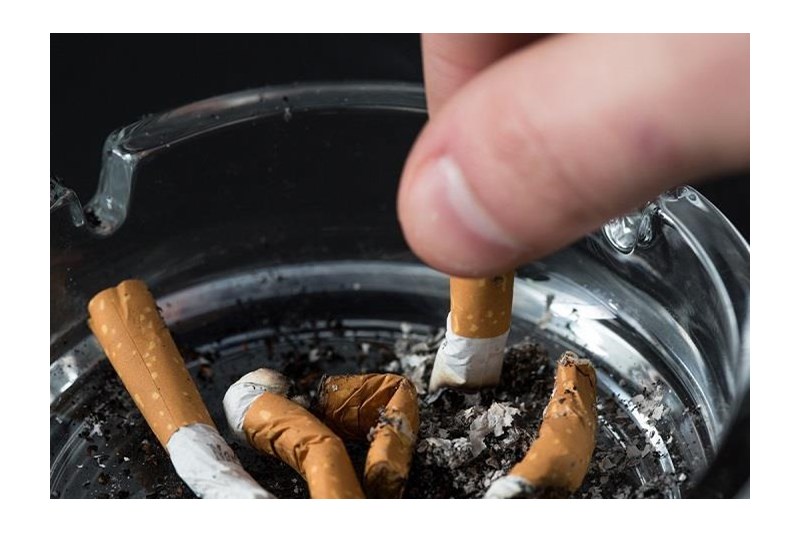New Zealand to ban cigarettes for future generations
New Zealand will ban the sale of tobacco to its next generation, in a bid to eventually phase out smoking; this means that those who are aged 14 and under today will never be legally able to buy tobacco.
Published: 09/12/2021
The new legislation means that anyone born after 2008 will never be able to buy tobacco products in their lifetime, as the legal smoking age will increase every year.
Of the announcement, Dr Ayesha Verrall, health minister, said, “This is a historic day for the health of our people.”
She added, “We want to make sure young people never start smoking.”
The Guardian reported, “The government announced the rising age alongside other measures to make smoking unaffordable and inaccessible, to try to reach its goal of making the country entirely smoke-free within the next four years. Other measures include reducing the legal amount of nicotine in tobacco products to very low levels, cutting down the shops where cigarettes could legally be sold, and increasing funding to addiction services. The new laws will not restrict vape sales.”
Meanwhile, the BBC specified, “The number of shops authorised to sell cigarettes will be drastically reduced to under 500 from about 8,000 now.”
However, both media outlets addressed different concerns regarding vaping.
The BBC highlighted the potential health risks in relation to vaping, sharing, “In recent years, vaping - smoking e-cigarettes which produce a vapour that also delivers nicotine - has become far more popular among younger generations than cigarettes.
“New Zealand health authorities warn however, that vaping is not harmless. Researchers have found hazardous, cancer-causing agents in e-cigarette liquids as well.
“But in 2017 the country adopted vaping as a pathway to help smokers quit tobacco.”
Meanwhile, The Guardian focused on the concerns that vaping appeals to young people who have never smoked, revealing, “Smoking has already been widely replaced by vaping among teenage New Zealanders, and is also attracting many young people who would never have taken up smoking – according to surveying of 19,000 high school students this year, nearly 20 per cent were vaping daily or several times a day, the majority with high nicotine doses. That’s compared to 3 per cent of those aged 15-17 who smoked daily in 2018, or 13 per cent who smoked a decade earlier.”
There are also fears that the move may create a black market for tobacco. However, Ayesha acknowledged this, noting "Customs will need more resource to enforce border control".
The move is a crucial part of New Zealand’s plan to reduce its national smoking rate to 5 per cent by 2025, before then eliminating smoking altogether.
The Guardian notes that “New Zealand’s daily smoking rates have been dropping over time – down to 11.6 per cent in 2018, from 18 per cent a decade earlier. But smoking rates for Māori and Pacifika were far higher – 29 per cent for Māori and 18 per cent for Pasifika.”
“If nothing changes, it would be decades till Māori smoking rates fall below 5 per cent,” Ayesha said. She said eradicating smoking in the next four years was within reach, saying, “I believe it is. In fact, we’re on track to for the New Zealand European population. The issue is, though, if we don’t change what we’re doing, we won’t make it for Maori – and that’s what the plan is really focused on.”
The publication concluded, “Initial plans for a smoke free generation of New Zealanders have now been finalised after public consultation. They were first floated in April. They will still need to pass through the legislative process, but should not face any obstacles – Smokefree 2025 is a headline Labour policy, and the party holds a majority in New Zealand parliament. Verrall said the legislation would be introduced in 2022, with the age limits coming in in 2023.”
Meanwhile, Reuters noted that, “The government will consult with a Maori health task force in the coming months before introducing legislation into parliament in June next year, with the aim of making it law by the end of 2022.”
Commenting on new measures being introduced to end smoking in New Zealand, Hazel Cheeseman, ASH deputy chief executive, said, “In New Zealand they set an ambition to be smokefree and now have a plan to achieve this. Our government, with the same ambition, is yet to make any clear commitments to tackle smoking – despite pledging a new strategy a year ago.
“The New Zealand measures may not all be right for us, but we do need strong regulation and proper funding of services if we’re to, in the government’s words, ‘make smoking obsolete’.
“We should start by consulting on raising the age of sale to 21 and levying the money needed to help smokers quit from the tobacco industry.”
Author: N/A

.jpg?width=300&height=200&scale=canvas)











